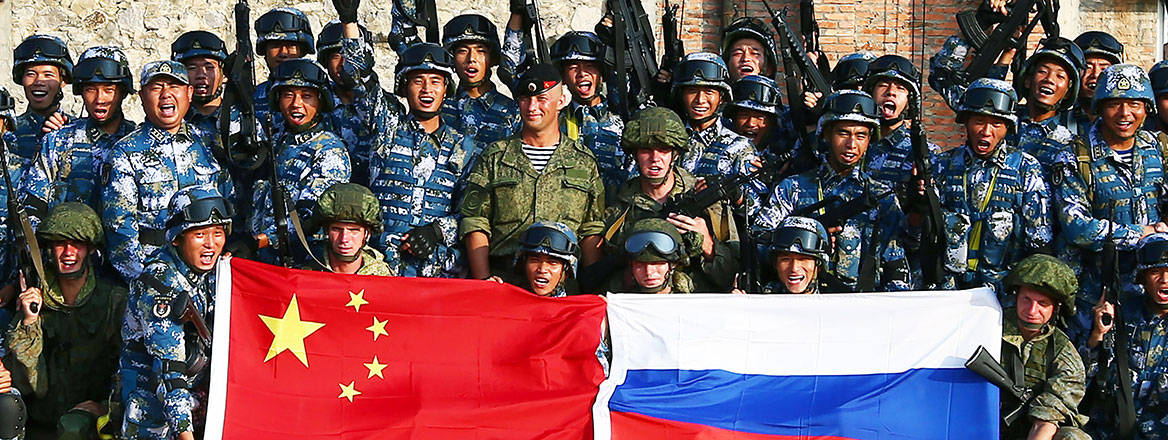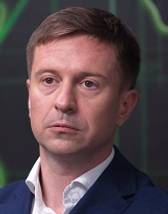Why Putin is Turning Russia into a Chinese Client State, and How to Stop It
The only option to end the war and to prevent Russia from coming under greater control by China is the removal of Putin’s regime.
By deciding to attack Ukraine, Vladimir Putin has destroyed the Russian Federation as it existed before. Obviously, Moscow has no chance of winning this war. The consequences could be either the transformation of Russia into an isolated police-counterintelligence dictatorship completely dependent on Chinese support, or the removal of Putin and his inner circle from power, with further democratisation and growing cooperation with Ukraine and the West based on the strict observance of international law. It is worth noting that only the second option would allow Russia to retain its sovereignty and avoid becoming a resource colony of China. Hence, regime change is a task not only for the West, but also for those Russian elites who still retain some vestiges of patriotism.
The boosting of Chinese influence in Russia – made even clearer by the recent Russian appeals to China for help with munitions, food rations for Russian troops and broader financial support – is not an accident, but a conscious step that Putin logically chose before the invasion. Putin's rapprochement with Defence Minister Sergei Shoigu, one of China's main lobbyists in the Kremlin; the use of businessman Yevgeny Prigozhin's network (including the Wagner Group and political technologists) in China's interests in Africa; and Rosneft and Gazprom’s reorientation to China clearly indicated this. The disclosure that Russia was the largest consumer of Chinese ‘secret loans’ in 2010–2017 suggests that the foundations of this influence began to be laid immediately after Putin came to power.
Putin – who just a year ago conducted a brilliant operation to sever Belarusian President Alexander Lukashenko's ties with the West, effectively ending Belarus' state sovereignty and bringing it under Russian external control – must surely have realised that the war in Ukraine would put Russia in the same position. Putin, Shoigu, Nikolai Patrushev and other hawks not only accepted, but actively sought such consequences. Just as Lukashenko did with Moscow, Putin and his entourage signed an agreement with Beijing to surrender Russia’s national sovereignty in exchange for maintaining their regime. This agreement is already being implemented, with China buying stakes in Russian state-owned corporations. At the same time, Russia is clearly taking on the role of a raw material appendage, as Chinese support is limited and does not apply, for example, to the supply of spare parts for Russian aircraft.
The boosting of Chinese influence in Russia is not an accident, but a conscious step that Putin logically chose before the invasion
A quick end to the war in Ukraine is not likely in this scenario. Putin needs the war to justify the final curtailment of all freedoms in Russia, the establishment of total censorship, and the expulsion of all dissenters. The war consolidates society around the regime and explains the difficult socio-economic situation. The Kremlin has already begun to position the war in Ukraine as one of self-defence against NATO. In the military dimension, this will mean a gradual curtailment of ground operations and a focus on missile and air strikes against civilian infrastructure, similar in nature to Bashar al-Assad's actions in Syria.
The only alternative to end the war is to remove Putin and his inner circle from power. Undoubtedly, this must be done by Russians themselves, because otherwise, such a change of regime will not be recognised by Russian society and may lead to undesirable consequences. Due to the authoritarian nature of the Russian regime, there are only two ways to remove it: revolution or coup. Given Putin's willingness to use weapons against his own people, and the need for public support for regime change, a combination of mass protests and a military coup would be the best option.
One of the threats to this option is an imitation – possibly carried out by the FSB – which, despite removing Putin and his entourage personally, would still allow the system to survive, much as it did after 1991. Given the fact that regime change in Russia must be carried out by Russian citizens and perceived as an internal cleansing, Ukraine and the West should focus on creating the public sentiment conducive to such a change, informing both the general public and elites about the establishment of de facto Chinese external control over Russia.
The views expressed in this Commentary are the author’s, and do not represent those of RUSI or any other institution.
Have an idea for a Commentary you’d like to write for us? Send a short pitch to commentaries@rusi.org and we’ll get back to you if it fits into our research interests. Full guidelines for contributors can be found here.
WRITTEN BY
Oleksandr V Danylyuk
RUSI Associate Fellow, Military Sciences
- Jim McLeanMedia Relations Manager+44 (0)7917 373 069JimMc@rusi.org


